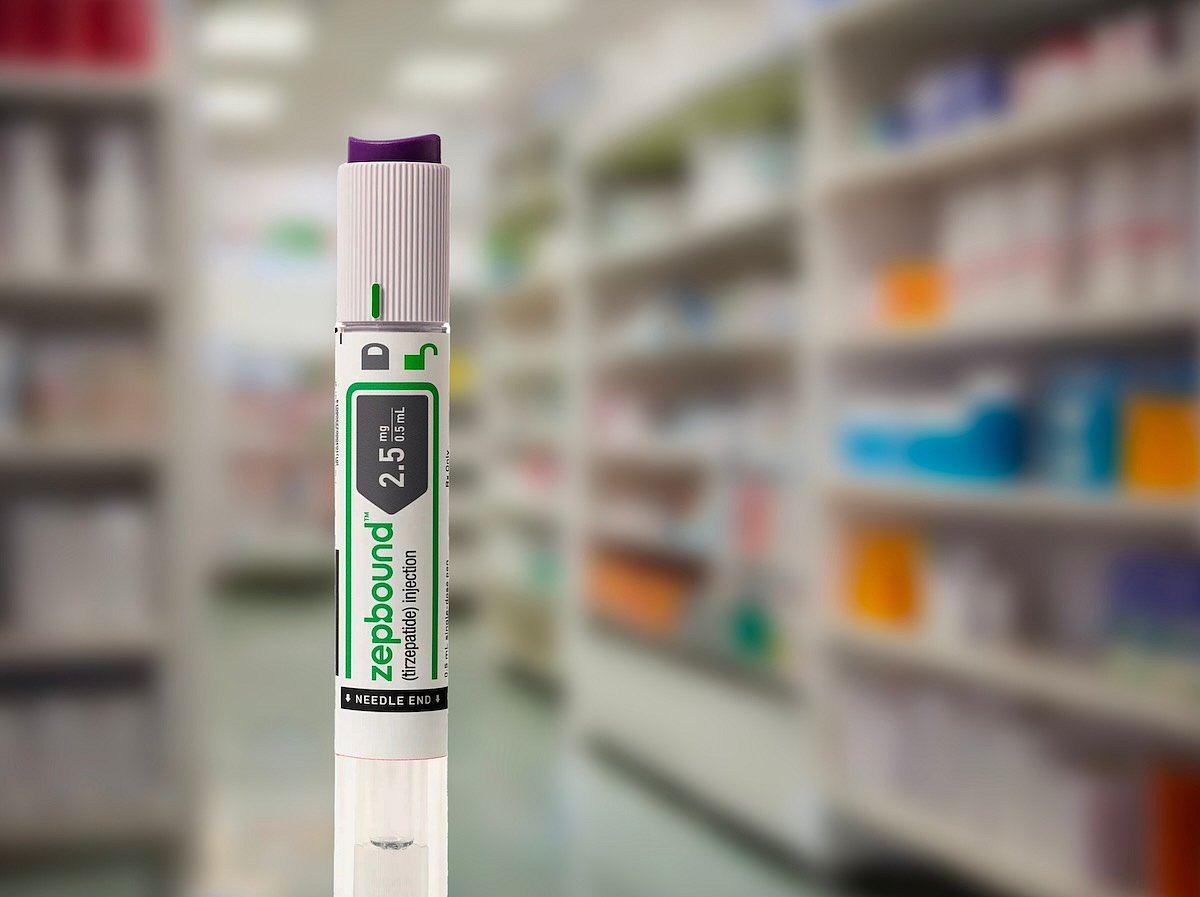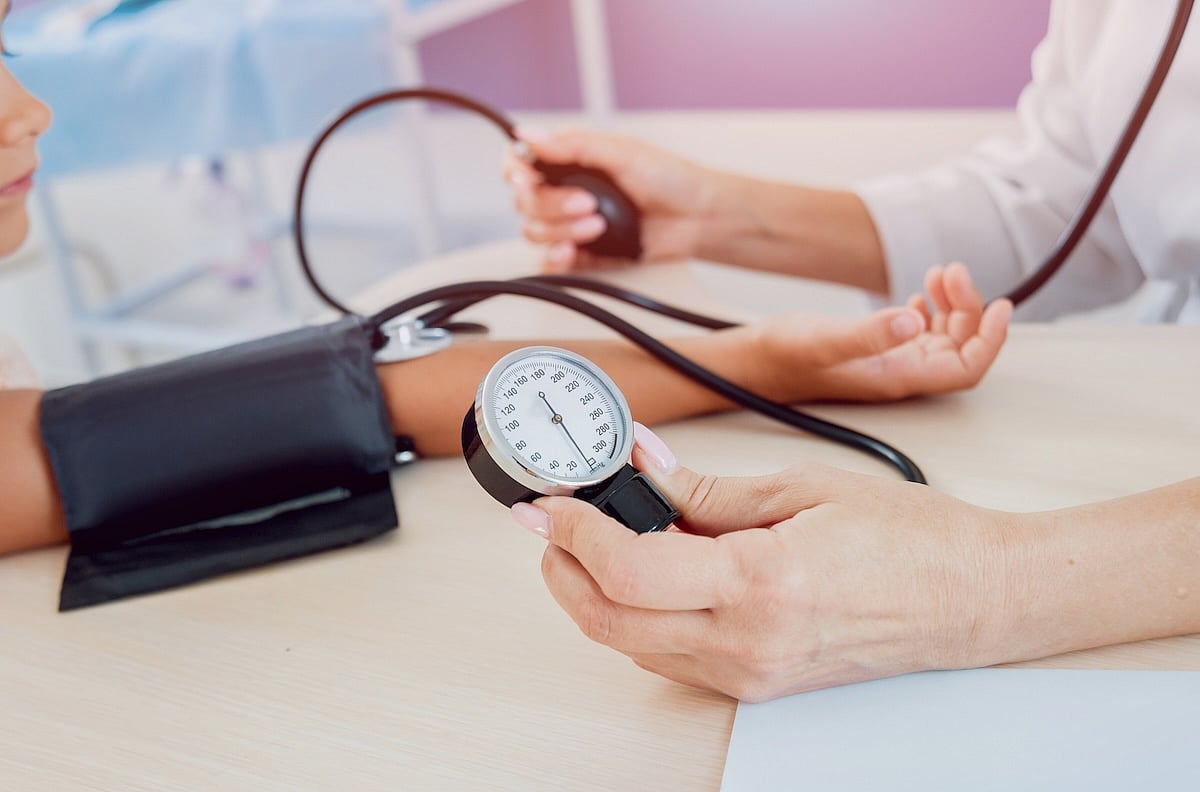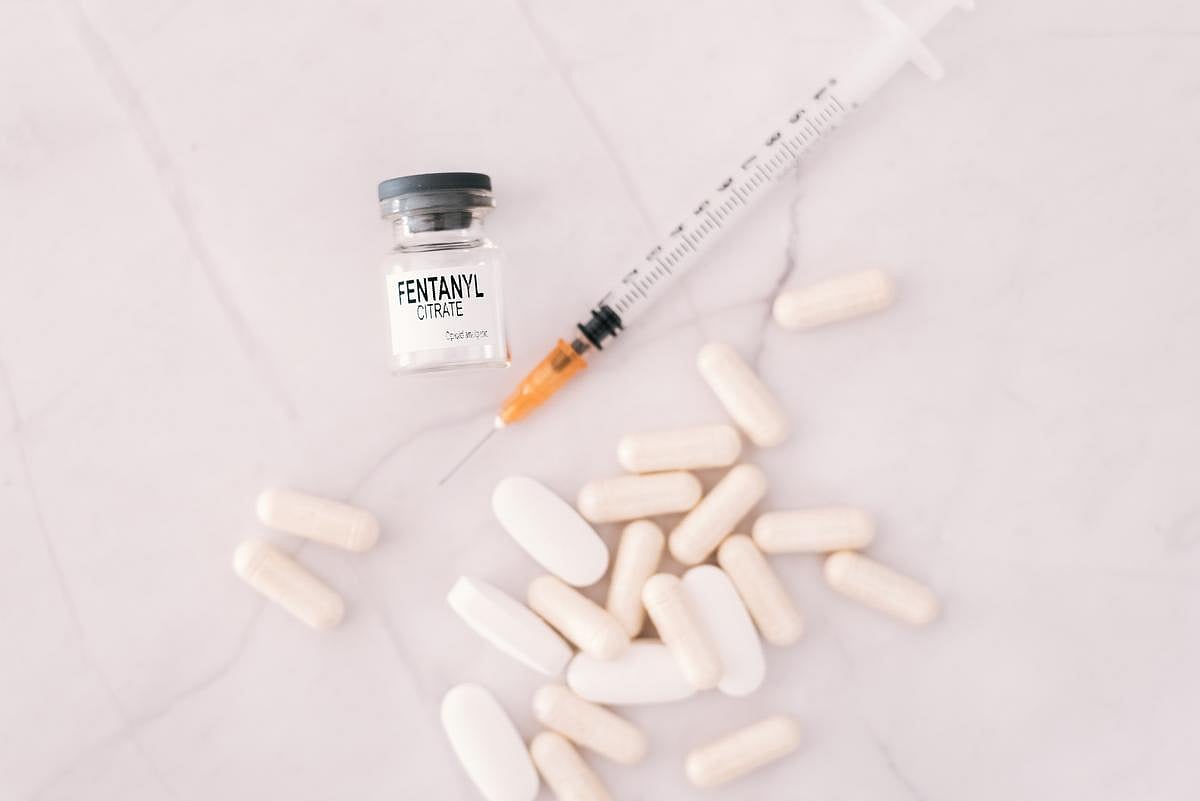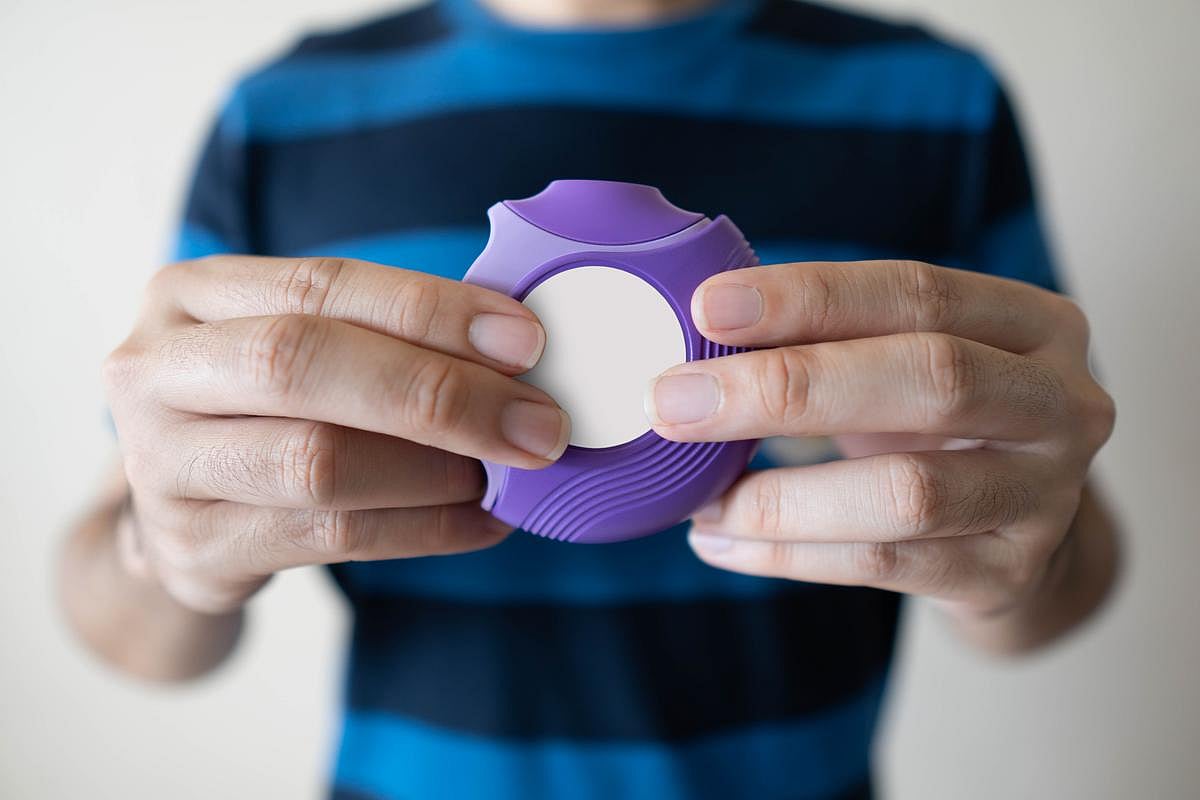Get Healthy!
Staying informed is also a great way to stay healthy. Keep up-to-date with all the latest health news here.
12 May
Mother of Twins Receives Life-Saving Double Lung Transplant after Cancer Diagnosis
A new mother of twins from Berlin finds a miracle in Chicago after being diagnosed with advanced lung cancer. Surgeons at Northwestern Medicine save her life with a double-lung transplant.
09 May
14 Types of Cancer Are on the Rise in People Under 50, Study Finds
Certain types of cancer are becoming increasingly common in people under 50, according to new research. These include breast, colon, kidney and uterine cancer.
08 May
Ultra-Processed Foods May Speed Up Early Signs of Parkinson’s Disease, Study Finds
In a new study, people who consumed the highest amounts of ultra-processed foods were more likely to show earlier signs of prodromal Parkinson’s disease, the stage of the disease seen before tremors begin.
Researchers Say Dance and Lullabies Are Learned, Not Hardwired
MONDAY, May 12, 2025 (HealthDay News) — Most parents know the soothing power of a lullaby like “Twinkle, Twinkle, Little Star.” But a new study suggests that singing to babies and even dancing may not be natural behaviors for everyone.
The study, published recently in the journal Current Biology, looked at the No...
- I. Edwards HealthDay Reporter
- |
- May 12, 2025
- |
- Full Page
Zepbound Outperforms Wegovy in Head-to-Head Weight Loss Study
MONDAY, May 12, 2025 (HealthDay News) — A new study has found that people taking Eli Lilly’s obesity drug Zepbound lost almost 50% more weight than those using Novo Nordisk’s Wegovy.
The study — published May 11 in the New England Journal of Medicine — followed 751 people across the U.S. who were over...
- I. Edwards HealthDay Reporter
- |
- May 12, 2025
- |
- Full Page
Trump Administration Cuts Funding for Life-Saving Baby Heart Device
MONDAY, May 12, 2025 (HealthDay News) — A Cornell University project to save babies born with serious heart defects has lost key funding just days after it was approved.
The U.S. Department of Defense (DoD) awarded $6.7 million on March 30 to support production and development of PediaFlow, a small device to help infants with h...
- I. Edwards HealthDay Reporter
- |
- May 12, 2025
- |
- Full Page
Pregnancy Health Problems Increase Kids' Blood Pressure
Children have an increased risk of high blood pressure if their moms suffered from health problems during pregnancy, a new study says.
Children had higher blood pressure if their moms had obesity, gestational diabetes or high blood pressure while pregnant, researchers reported May 8 in JAMA Network Open.
The presence of just...
- Dennis Thompson HealthDay Reporter
- |
- May 12, 2025
- |
- Full Page
U.S. Illicit Opioid Use Could Be 20 Times Higher Than Previously Estimated
MONDAY, May 12, 2025 (HealthDay News) — More Americans use illicit opioids like fentanyl than previously estimated, undercutting perceived progress in confronting the U.S. opioid crisis, a new study says.
More than 1 in 10 American adults (11%) reported illicit opioid use within the past 12 months, researchers reported May 9 in J...
- Dennis Thompson HealthDay Reporter
- |
- May 12, 2025
- |
- Full Page
FDA Approves At-Home Cervical Cancer Test for Women Ages 25 to 65
MONDAY, May 12, 2025 (HealthDay News) — Women now have a new way to check their risk for cervical cancer — from the comfort of their own home.
The U.S. Food and Drug Administration (FDA) has approved the Teal Wand, an at-home test that screens for human papillomavirus (HPV), the virus that causes nearly all cervical cancers,
- I. Edwards HealthDay Reporter
- |
- May 12, 2025
- |
- Full Page
Birth Control Pill Increases Risk Of Asthma Attacks In Young Women
Young women taking the Pill might have an increased risk of asthma attacks, a new study says.
Taking the progesterone-only form of the contraceptive pill can increase asthma attacks among women under 35, researchers reported May 7 in ERJ Open Research.
There was no similar risk among women taking the combo estrogen/progester...
- Dennis Thompson HealthDay Reporter
- |
- May 12, 2025
- |
- Full Page
Medicaid 'Unwinding' Cost Kids Access To Asthma Inhalers, Other Chronic Disease Meds
MONDAY, May 12, 2025 (HealthDay News) — Children and young adults formerly covered by Medicaid are losing access to medications needed to control conditions like depression, schizophrenia, ADHD, asthma and epilepsy, a new study says.
Young people need to take these meds regularly to get the best results, as interruptions can cause fl...
- Dennis Thompson HealthDay Reporter
- |
- May 12, 2025
- |
- Full Page
Double Lung Transplant Saves Mother Of Twins
MONDAY, May 12, 2025 (HealthDay News) — The timing of Cornelia Tischmacher’s pneumonia couldn’t have been worse — eight months after the Berlin mom gave birth to twins.
But the pneumonia just wouldn’t go away, so Tischmacher went to a doctor in January 2018. Tests revealed that the then-40-year-old had stage 3...
- Dennis Thompson HealthDay Reporter
- |
- May 12, 2025
- |
- Full Page
Sweet Tooth Explained: Researchers Reveal How We Taste Sugar
SUNDAY, May 11, 2025 (HealthDay News) — Why does sugar taste so good — and why do we want it so badly? Scientists may finally have the answer.
For the first time, researchers have figured out the structure of the sweet receptor — the tiny part of your tongue that tells your brain when something tastes sweet.
T...
- I. Edwards HealthDay Reporter
- |
- May 11, 2025
- |
- Full Page
Topical Antibiotic May One Day Treat Infected Ears
SATURDAY, May 10, 2025 (HealthDay News) — Any parent who has been jolted awake by the squeals of a toddler with an ear infection knows that relief won't be swift — or sure.
Kids often build resistance to the usual days-long antibiotic treatment regimen so the painful infections can come roaring back. But Cornell University rese...
- Carole Tanzer Miller HealthDay Reporter
- |
- May 10, 2025
- |
- Full Page
Trump Taps Wellness Influencer Casey Means For Surgeon General
FRIDAY, May 9, 2025 (HealthDay News) — President Donald Trump has chosen Dr. Casey Means, a wellness influencer and health tech entrepreneur, to be his nominee for U.S. surgeon general.
The decision comes after Trump withdrew his previous nominee, Dr. Janette Nesheiwat, The Associated Press reported.
Trump ...
- I. Edwards HealthDay Reporter
- |
- May 9, 2025
- |
- Full Page
Thinking About a Tattoo? FDA Warns These Inks Could Be Dangerous
FRIDAY, May 9, 2025 (HealthDay News) — The U.S. Food and Drug Administration (FDA) is warning consumers and tattoo artists that two tattoo inks have tested positive for harmful bacteria and could lead to serious infections.
The affected products are:
Sacred Tattoo Ink, Raven Black (CI# 77266; Lot#: RB0624, Best Before: ...
- I. Edwards HealthDay Reporter
- |
- May 9, 2025
- |
- Full Page
Some Cancers Increasing in People Under 50, New Report Shows
FRIDAY, May 9, 2025 (HealthDay News) — More young adults in the U.S. are being diagnosed with cancer, and researchers are trying to figure out why.
A new government report shows that rates of several types of cancer are going up in people under age 50, especially among women.
The study, led by scientists at the National C...
- I. Edwards HealthDay Reporter
- |
- May 9, 2025
- |
- Full Page
Childhood Obesity Triples Odds Of Weight Discrimination
FRIDAY, May 9, 2025 (HealthDay News) — Childhood obesity nearly triples a person’s risk for experiencing discrimination or stigma based on their weight, a new study says.
Severe obesity before age 18 increased a person’s odds of experiencing weight stigma by 2.8 times, researchers reported recently in the Internationa...
- Dennis Thompson HealthDay Reporter
- |
- May 9, 2025
- |
- Full Page
Talk Therapy On The Rise, Psychiatric Meds Used Less Often
FRIDAY, May 9, 2025 (HealthDay News) — More talk and fewer pills are being employed to help Americans maintain their mental health, a new study says.
Psychotherapy is assuming a larger role in mental health care, while medications prescribed without accompanying therapy are becoming less common, according to results published in earl...
- Dennis Thompson HealthDay Reporter
- |
- May 9, 2025
- |
- Full Page
Blood Testing Could Catch Cancers Early, Projections Say
FRIDAY, May 9, 2025 (HealthDay News) — Blood tests could catch as many as half of cancers at an earlier, more treatable stage, a new study says.
If conducted every year or every other year, the multi-cancer early detection (MCED) blood test could help more people survive cancer, researchers reported May 8 in BMJ Open.
...
- Dennis Thompson HealthDay Reporter
- |
- May 9, 2025
- |
- Full Page
Smoking Doesn't Explain Increased COPD Risk For Women
Smoking can't explain why women are more at risk for COPD, a new study says.
Women are about 50% more likely than men to develop COPD even though they are less likely to smoke, researchers reported May 8 in the journal BMJ Open Respiratory Research.
Smoking tobacco is the main cause of COPD, the umbrella term for chronic bre...
- Dennis Thompson HealthDay Reporter
- |
- May 9, 2025
- |
- Full Page
Women With Autoimmune Disease At Greater Risk For Heart-Related Death
FRIDAY, May 9, 2025 (HealthDay News) — Women with common autoimmune inflammatory diseases are more likely than men to die from heart disease, a new study says.
Women with rheumatoid arthritis, lupus or systemic sclerosis have a 50% higher heart disease-related death rate than men, researchers reported May 5 in the journal Circula...
- Dennis Thompson HealthDay Reporter
- |
- May 9, 2025
- |
- Full Page
Ovary Removal Reduces Death, Cancer Risk Among Genetically Prone Breast Cancer Survivors
FRIDAY, May 9, 2025 (HealthDay News) — Removal of the ovaries and fallopian tubes appears to dramatically reduce the risk of death among breast cancer survivors who are genetically prone to cancer, a new study says.
Breast cancer survivors carrying BRCA1 and BRCA2 gene variants had a 48% overall lower risk of death after undergoing t...
- Dennis Thompson HealthDay Reporter
- |
- May 9, 2025
- |
- Full Page



.jpg?w=1920&h=1080&mode=crop&crop=focalpoint)
















